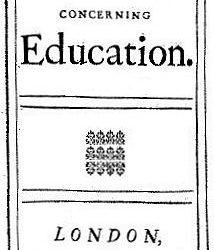With the last days of summer upon us, I am packing up the sunscreen and the dog for our annual family vacation at the beach. Traveling with us, of course, will be my familiar companions, the many public intellectuals who have, presumably as a matter of civic duty, graced us with their presence in the form of books. For members of SSP, whose activity is centered on scholarship written for scholars, the public intellectual may appear to be something of an interloper. Why these popular books? What would possess a scholar to want to put a book on the New York Times bestseller list?

This year’s entourage is as rich as ever, richer perhaps, as we live in a platinum age for the intellectually curious. I am well into Barbara Tuchman’s Guns of August, wondering how it is that I never read this before. Loaded on my Kindle and ready to fire is Daniel Kahneman’s Thinking, Fast and Slow, one of several books about the mind that have caught my attention. I just completed the mind-blowing The Future of the Mind by Dr. Michio Kaku, which lives on the border of science fiction, but which nonetheless has colored my experience for the last two months. Next up: Fredrik Logevall’s Embers of War, which won the Pulitzer Prize. Logevall is a professor of history at Cornell, but his students are everywhere. While walking the dog I will be listening to the audio version of Brian Greene’s The Hidden Reality. Green teaches physics and mathematics at Columbia.
What’s curious about these books and the tiny subgenre they belong to (nonfiction books written by people who actually know something) is that they lie outside the reputation and career structure of the modern academic. No one gets promoted for publishing a book with HarperCollins or Penguin Random House. (A moment of silence, please, to contemplate how wonderful quality trade publishing is.) Lisa Randall took time off from her work at Harvard to write Knocking on Heaven’s Door–to my benefit–and Eric Brynjolfsson and Andrew McAfee, both professors at MIT reshaped my thinking about the economy and social policy with their urgent The Second Machine Age. I imagine that their colleagues rib them about this. Why are you wasting your time? Does your ego require you to beg for the praise of idiots?
Speaking for the idiots, it seems to me that the public intellectual has something in common with the altmetrics movement in that both are democratizing forces. But there the similarity ends. Here is a comment by Euan Adie on Reddit, a service for the Internet’s unwashed. Yes, scholarly communications has influence beyond the narrow world of citations and impact factor, but Adie is still talking about the same publications; the difference is in how you assess the value of that content. The public intellectual has a more radical ambition, not only to seek influence beyond the walls of the academy but to create material specifically for that other world. Here is an old-fashioned SAT analogy: altmetrics is to scholarly communications what the PDF is to digital publishing. It’s a half-way house, a compromise. To work with all the affordances of digital publishing means to walk away from the PDF; to reach a wider audience requires more than measuring different things; it requires making different things.
It is my view that the law of unintended consequences, which really deserves a place among Moses’s big ten, has insinuated itself among all those who hold “popularizers” in contempt. In a conversation with a distinguished scientist not long ago, I learned of his despair about the public’s knowledge of climate science and the nature of GMO foods. But he also went on to talk about his professional society’s journal and the important business of publishing research for other scientists. I asked him about having his society begin to publish for the general public. He said, “It won’t get you tenure.”
He’s right, and it’s a shame. There are audiences beyond one’s fellow researchers and the lucky undergraduates who sit in their classrooms. The open access movement understands this, though it is handicapped by the built-in limitations of the very content it wants to share. A worthwhile ambition would be to bring the university into the world of public discourse, but to do that the incentives of the researchers themselves must be realigned.
And when that happens you will be able to enjoy a slice of GMO toast without being told that you are perverting the essential spirit of Gaia.
Discussion
6 Thoughts on "Going to the Beach with a Public Intellectual"
As you have so eloquently shown in your editorial, there is a vast community of independent scholars and individuals who regularly, and often of necessity, read outside of what might be classified as their “discipline”. And there are academics who publish articles and books that can be classified as scholarly publications but which also merit being published, as you have noted, by presses that are not within the narrow domain of the “academic” world. There are also presses that ride that borderland between “scholarly” publications and that are also of interest and significance for the lay public, not just for casual reading, but for becoming informed in order to provide judgment on significant issues from health to environment and political decisions.
I am not sanguine that “academics” see that much of the work at the border are not of sufficient merit to be considered for promotion and tenure. Historically, there is a large body of literature published by scholars prior to the existence of the academic journal and definitely before the default to the academic press as the arbiter of what merits consideration for p/t.
In the same manner that MOOC’s and alternative methods of acquiring and certifying marketable skills are challenging the post secondary institutions, Open Access may challenge the hegemony (and perhaps, the healthy paranoia) of the scholarly publishers.
I remember when David McCullough began publishing his immensely popular books on history and the academic historians were full of envy. I, on the other hand, was full of Schadenfreude. What’s important is that McCullough and others in his category — you mention, e.g., Barbara Tuchman and there are also Nathanael Philbrick and others — are educating, enlightening, enthusing lay people who happen to be sufficiently interested and motivated to expand their knowledge of the world beyond what celebrities are currently doing. This is a far more valuable contribution to society than writing a book that (to use my son’s words) four people are going to read. Research and writing can’t be just an incestuous thing. If it doesn’t do anything to enhance the quality of the human mind in general, it’s rather useless — oh, except for that all-important tenure, of course.
Walter Bagehot said it best in 1853: “The reason why so few good books are written is that so few people who can write know anything.”
“The public intellectual has a more radical ambition, not only to seek influence beyond the walls of the academy but to create material specifically for that other world.”
I completely agree, and am encouraged by the #fergusonsyllbus, which seems to me an example of how modern scholarly communication has brought the academic and public spheres together in a relevant and meaningful way.
http://sociologistsforjustice.wordpress.com/ferguson-syllabus/



